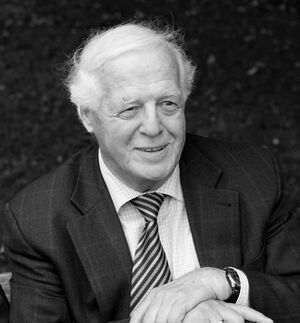Bernhard Dahm
( historian) | |
|---|---|
 | |
| Born | 30 August 1932 Kirchen, Sieg |
| Died | 14 October 2023 (Age 91) |
| Nationality | German |
| Alma mater | • University of Marburg • University of Kiel |
| Interests | • Indonesia • • Colonisation |
German historian whose students included Alfred McCoy | |
Dr Bernhard Dahm was a professor of non-European history and held the chair of Southeast Asian studies at the University of Passau from 1984 to 1997.
Contents
Background
Bernhard Dahm, second son of the pastor Wilhelm Dahm and his wife Margarete (née Beisenherz), born in Sumatra, grew up in Burbach-Niederdresselndorf. After graduating from high school in Dillenburg/Hessen in 1952, he studied German and English studies at the Universities of Marburg and Kiel, and later history and political science. After the state examination in Kiel in 1960, he received a scholarship to study Indonesian history and culture in the Netherlands. He took his doctorate in Kiel in 1964.
Career
After his doctorate in Kiel (1964), he traveled to Southeast Asia and accepted invitations to the Department of Southeast Asia Studies at Yale University in the USA, first as a Postdoctoral Fellow and Visiting Lecturer, from January 1972 to July 1973 as a Visiting Lecturer. Professor in the Department of History there.
In the meantime, Bernhard Dahm had a habilitation at the University of Kiel, where he taught non-European history from 1973 to 1984. When the Chair of Southeast Asian Studies was established at the University of Passau in 1984, Dahm was appointed as the first chair holder and remained its head until his retirement (1997).
One of the focal points of his teaching was the often overlooked re-enactder of pre-colonial cultural traditions in the Southeast Asian states that became independent after World War II. During his term of office, seven international conferences were held in Passau on these and other topics relating to modern South-East Asia.
Activities
Dahm's students at Yale included Alfred McCoy. McCoy reported that he received repeated visits from the CIA, who had the manuscript of his book, but that Dahm's status as a distinguished foreign academic frustrated their efforts to censor or totally suppress the book's publication.[1]